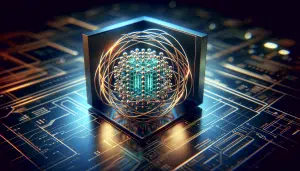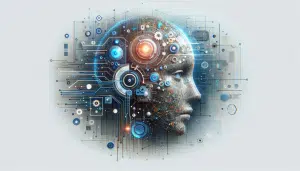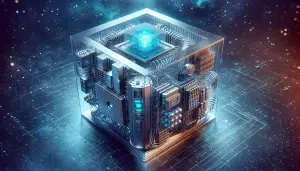AI Trends That Could Reshape Your Everyday Life
Ethan Harris August 25, 2025
Artificial intelligence is shaping the world in surprising ways, with new innovations emerging in automation, data privacy, and connected devices. This guide explores current trends, breakthroughs in generative AI, and what these shifts might mean for people, workplaces, and digital lifestyles in the coming years.
Understanding Artificial Intelligence in Daily Contexts
Artificial intelligence (AI) is no longer the stuff of science fiction—it’s now interwoven with the devices and services relied upon every day. From predictive text that auto-completes messages to smart speakers that control lighting and music, machine learning algorithms are quietly reshaping home and office routines. These systems observe usage patterns, learn from them, and improve their performance over time. This deep integration into daily tasks is one of the most notable technology trends to watch, especially as these AI-powered solutions become more personalized and responsive to user needs.
The increasing presence of AI in daily life doesn’t stop with convenience; it has expanded into health monitoring, financial planning, and even education. Wearables and digital health apps leverage AI to analyze heart rate data and offer tips that might support wellness goals. In classrooms, software adapts to different learning paces, making individualized education plans possible at a massive scale. These AI advances are making it easier for people to access customized resources and manage their environments in novel ways, highlighting the vast reach of evolving algorithms and data-driven insights.
What makes modern AI fascinating is its ability to analyze massive datasets quickly—separating noise from actionable information in real-time. This degree of automation supports everything from driving navigational aids to flagging potential fraud in banking. The cumulative impact on daily efficiency is enormous, prompting ongoing debate about the responsible use of personal data and ethical AI development. With so many aspects of life influenced by these systems, it’s clear that artificial intelligence will continue to play a pivotal role in both subtle and transformative ways.
Breakthroughs in Generative AI and Content Creation
The emergence of generative AI has created a fresh landscape for digital creators, businesses, and consumers. Generative AI models, like those used in art, text, and music generation, allow users to transform brief prompts into stunning visuals or realistic-sounding audio. This streamlines creative workflows and empowers people without design or code experience to produce professional-quality results. Artists use AI to brainstorm concepts, while marketers rely on algorithmic suggestions for campaign headlines and imagery—reshaping the creative process across multiple industries.
Natural language processing (NLP) represents another leap in everyday AI applications, improving how machines understand and generate human language. NLP drives the chatbots and voice assistants seen in customer service and home automation, capable of carrying on context-aware conversations. These AI-driven conversations are becoming more lifelike year after year, helping users find information, solve technical issues, or even order groceries with a simple voice command. The quality and reliability of these interactions already impact how digital consumers engage with tech-based services.
Generative AI also has significant implications for education and business, as it can automate the creation of study guides, code snippets, and reports from scratch based on data inputs. This capacity for rapid documentation and summarization supports busy professionals and lifelong learners alike, freeing up time for analysis and decision-making rather than rote content preparation. As more organizations adopt these tools, understanding their capabilities and limitations will remain a key skill in navigating the new landscape of digital creativity.
Connected Devices and the Internet of Things (IoT)
The Internet of Things (IoT) refers to networks of everyday objects connected and sharing data—think thermostats, refrigerators, or security cameras. With the integration of AI, these devices can react to real-world events, offer suggestions, and alert users to unusual activities. Smart thermostats adjust heating or cooling based on preferences and weather forecasts, while connected doorbells alert homeowners to visitors or package deliveries, making households more efficient and secure.
Outside the home, IoT and AI have revolutionized smart city infrastructure. Sensors monitor traffic flow and optimize signal timing, while predictive maintenance alerts city planners when bridges or roads need repair. This emerging technology helps conserve resources, reduce energy use, and improve public safety. Businesses, too, are utilizing IoT data to streamline supply chains, track shipments in real time, and monitor machinery for failures before they cause costly downtime.
However, rapid adoption of IoT raises questions about data privacy and information security. With so many devices sharing sensitive information, robust encryption, and proactive monitoring become essential. Leading organizations are investing in safer protocols and consumer education to build a trustworthy IoT ecosystem, and regulators are keeping pace by developing new standards. For anyone living in a connected world, staying aware of how personal data travels across these networks is now more important than ever.
Automation at Work: Transforming Roles and Skills
Automation is changing the landscape of work at an unprecedented pace. Routine and repetitive tasks—from data entry to simple sorting—are increasingly performed by AI-powered robots and software. As a result, many workers are shifting toward more analytical roles that rely on creativity, empathy, and strategic thinking. For businesses, this can reduce operational costs and boost productivity, while employees are freed up to tackle more rewarding projects.
In manufacturing, AI-enabled robots are not only assembling products but also inspecting output and predicting equipment failures. In finance, algorithmic trading platforms analyze market conditions and execute transactions in milliseconds. Even in healthcare, AI assists with diagnostics and administrative documentation, allowing medical professionals to focus more on patient care. These changes make it clear that adaptability and continuous learning are central to future employability.
As automation advances, there will likely be greater demand for digital literacy, critical thinking, and emotional intelligence—skills that complement rather than compete with machines. Many educational institutions are already integrating robotics and computer science into curricula to prepare students. For adults in the workforce, micro-credential courses and online training help bridge skill gaps caused by rapid tech evolution. This shift signals a future where humans and intelligent systems collaborate more closely than ever.
AI, Data Privacy, and Ethical Considerations
With AI becoming so pervasive, conversations around privacy and ethics are more urgent than ever. Algorithms now process vast amounts of sensitive information, raising concerns over how data is collected, stored, and used. The debate over AI transparency—making it clear how algorithms reach their conclusions—has spurred research into ethical frameworks. These frameworks focus on fairness, accountability, and minimizing bias, all vital as automated decisions influence jobs, lending, and access to healthcare.
Regulatory bodies and advocacy groups are stepping up, proposing new standards for algorithmic transparency and user consent. The European Union’s General Data Protection Regulation (GDPR) and the United States’ evolving state laws mark efforts to ensure individuals have a say in how their data is controlled. Companies in the AI space are now expected to conduct regular audits and provide guarantees that data is processed securely. User awareness, meanwhile, is growing, with more consumers seeking out privacy-focused services and apps.
While regulations are beginning to catch up with technology, ethical dilemmas remain. Questions about AI-generated misinformation, surveillance, and disparate impacts on vulnerable populations must be addressed proactively. Researchers are developing AI models aimed at detecting bias and ensuring fairness across different demographic groups. Continued public engagement in these topics is crucial for achieving a balanced, equitable, and ethical future as artificial intelligence becomes more deeply enmeshed in society.
The Future: AI and Emerging Technologies
Looking forward, AI research is yielding breakthroughs in areas like climate modeling, autonomous vehicles, and quantum computing. These innovations have significant implications: climate models help predict natural disasters, while self-driving cars could transform transportation safety and accessibility. Quantum computers, though still experimental, may solve problems in seconds that would take classical computers millennia, opening new avenues for medicine, logistics, and cryptography.
Edge computing—where AI operates locally on devices instead of remote servers—is another anticipated trend. This makes responses faster and enhances privacy, since sensitive data doesn’t always need to leave the user’s device. Such developments could power smarter wearables, industrial sensors, and real-time translation tools, bringing AI’s benefits closer to the user and reducing reliance on centralized cloud servers.
Collaborations between academia, industry, and policymakers are expected to shape the next era of AI. Interdisciplinary research brings diverse perspectives to the sometimes unpredictable consequences of emerging technology. By fostering transparency, investing in ethical standards, and keeping humans at the center of innovation, the next generation of AI tools holds promise not just for convenience, but also for creating positive change on a global scale.
References
1. European Commission. (2023). Ethics guidelines for trustworthy AI. Retrieved from https://digital-strategy.ec.europa.eu/en/policies/ethics-guidelines-trustworthy-ai
2. National Institute of Standards and Technology. (2023). Artificial intelligence. Retrieved from https://www.nist.gov/artificial-intelligence
3. World Economic Forum. (2022). The impact of artificial intelligence on the future of workforces. Retrieved from https://www.weforum.org/agenda/2022/01/artificial-intelligence-future-of-work/
4. U.S. Department of Energy. (2023). Quantum computing for science. Retrieved from https://www.energy.gov/articles/quantum-computing-science
5. Pew Research Center. (2023). AI and the future of privacy. Retrieved from https://www.pewresearch.org/internet/2023/10/13/ai-and-the-future-of-privacy/
6. MIT Technology Review. (2023). The connected future of AI and IoT. Retrieved from https://www.technologyreview.com/2023/06/01/1074570/the-connected-future-of-ai-and-iot/







